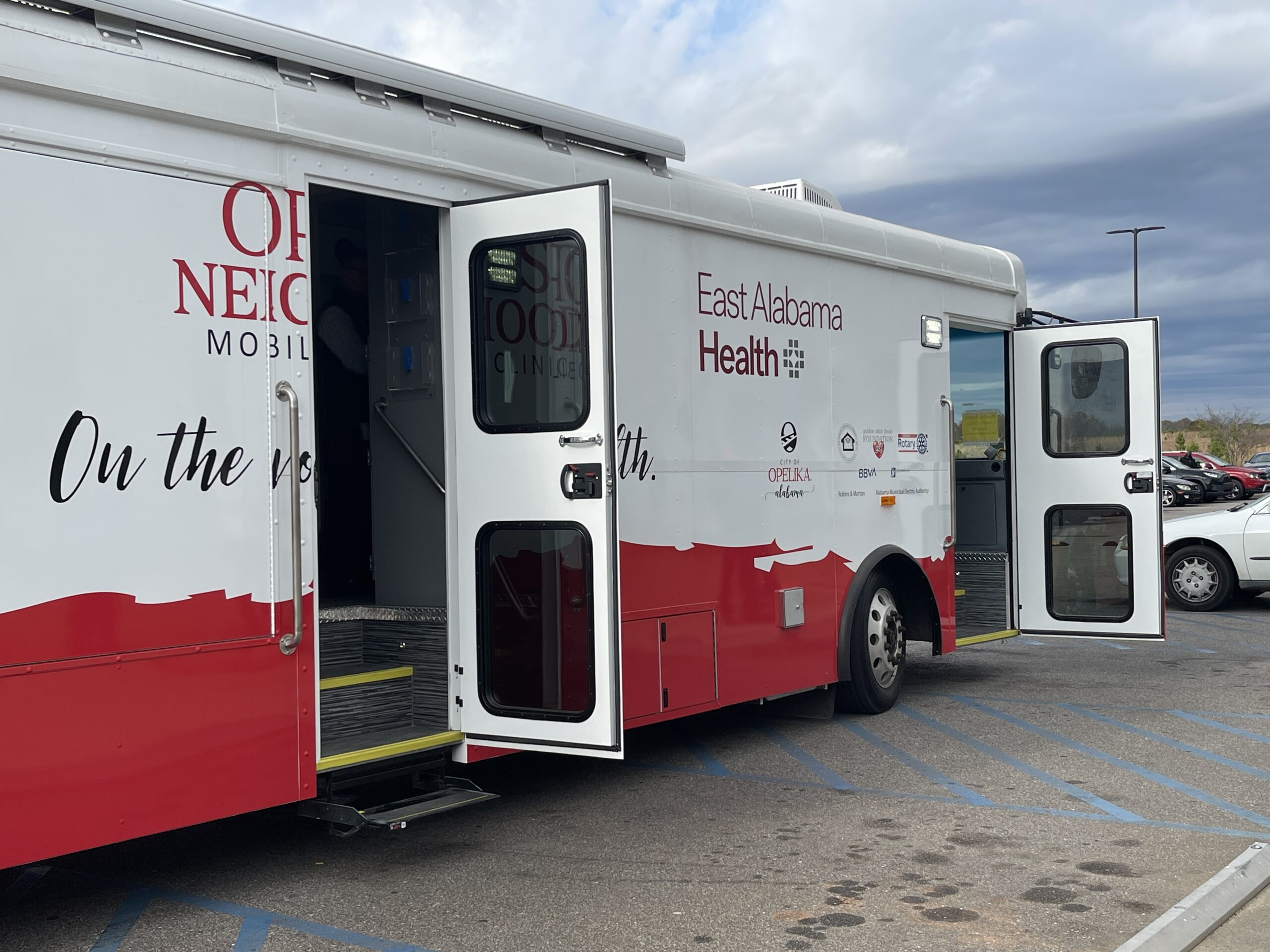BY TOM WOFFORD
FOR THE OBSERVER
OPELIKA—
The Opelika Neighborhood Mobile Wellness Clinic will make its first visit to the Courthouse Square on Friday, Oct. 13, from 9 a.m. until 2 p.m.
East Alabama Medical Center (EAMC) operates the converted Bluebird bus, which provides screenings for the most common chronic illnesses, primarily blood pressure checks and glucose screenings, at no cost.
“The Mobile Wellness Clinic brings basic healthcare to the neighborhoods that need it,” said Sutricia Johnson, manager of the mobile clinic.
The mobile wellness clinic had its official launch last December and has since been making weekly appearances all around Opelika, but the 13th will be its first visit to the square. The mobile clinic will also set up at the offices of the Housing Authority located at 1706 Toomer St. on Oct. 6.
“Of course, our ultimate goal is to increase access to healthcare, particularly to those with limited access or no insurance,” Johnson said. “But we don’t turn anyone away. If you have insurance and need a screening, we gladly provide it just the same, at no cost.”
When one steps into the clinic, they’ll find an interview and waiting room that leads into the examination room. There’s a lavatory area with a sink. The clinic is staffed by a nurse, most often Johnson, who performs the screenings, as well as by a social worker.
“It’s been a great asset having the social worker,” Johnson said. “She can connect the patients with a wide range of resources that a nurse alone can’t. Many patients need other services and the social worker can identify and direct them to those. We connect patients with a primary care physician if they don’t have one.We also provide education on preventing chronic illnesses,” Johnson said.
The clinic sets up three Fridays of each month, with the other week being a community visit on Thursday.
The mobile clinic was first conceived in 2017 as a joint project of the city of Opelika, the Casey Family Foundation and East Alabama Health (EAH). Through its partnership with Casey Family Programs, the city of Opelika learned about the Mobile Studio, a community-based build-and-design group in Auburn that works with municipalities and public agencies to research and design solutions that improve communities. Members of the planning group visited a highly successful mobile health program in Gainesville, Florida, whose clinic was serving 3,000 patients a year in medically underserved areas.
But the COVID-19 outbreak delayed the project’s completion, according to Leigh Krehling, city of Opelika’s community relations officer.
“It was so difficult during Covid to move the project,” she said.
The city of Opelika had taken on the task of raising the $200,000 needed to acquire a bus and convert it into a clinic on wheels,
First off, First Transit donated the bus.
“Once we had a bus, we had a lot of key donors who contributed to the retrofit,” Krehling said. “The Opelika Housing Authority was a big donor, along with Golden State Food, BBVA Compass, the Opelika Rotary, Auburn Bank and the Alabama Municipal Electric Authority.
The city of Opelika maintains and fuels the clinic.EAMC provides the medical services and manages the day-to-day operations.
The mobile clinic’s website features a story of a medically underserved patient whose life was radically changed, and possibly saved, by the clinic. He had been feeling bad and decided to visit the clinic because it was stationed nearby him that day. Once he was in the clinic, it didn’t take long for the staff to find his glucose level was literally “off the chart.” He had been living with undiagnosed Type-2 diabetes for an unknown length of time, and it required immediate intervention. The staff sent him to EAMC’s ER, where he presented a glucose level four times higher than normal. He spent three days in the hospital, and now knows how to maintain a healthy blood sugar level, and he encourages all the men he knows to go to the clinic and get a checkup.
The man later came to the mobile clinic for his checkup, and his glucose level was in the normal range.
“I just lost it then,” Johnson said, and said that she and the patient high-fived and danced around the exam room. “It’s obviously thrilling to know you played a part in changing someone’s life.”


